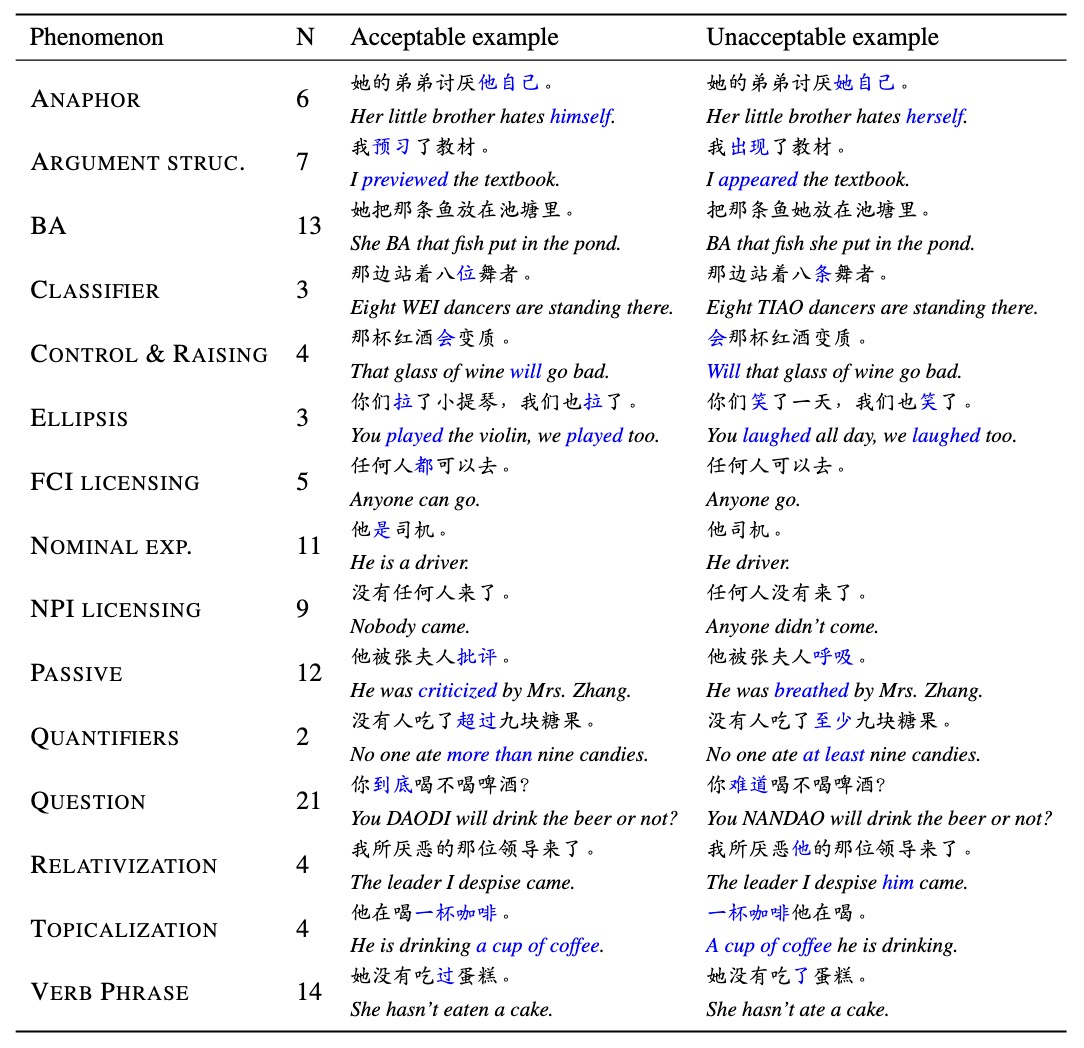Jialong Tang, Pei Zhang, Baosong Yang, Rui Wang, Hai Hu
Shanghai Jiao Tong University & Tongyi Lab, Alibaba Cloud
If you have any questions, please contact Yikang Liu and Hai Hu.
ZhoBLiMP is a dataset that can be used to probe Chinese linguistic knowledge in language models, especially syntax. It contains 35k minimal pairs that differ in a minimal way to demonstrate a single syntactic or semantic contrast. ZhoBLiMP has 118 paradigms in 15 high-level linguistic phenemena.
We evaluate several off-the-shelf LLMs and Pythina-based models we train from scratch on ZhoBLiMP. Our results show that model performance saturates with limited model parameters (around 500M) and training data (around 1B tokens).
Along with the dataset, we release model checkpoints we train from scratch and code for the web interface for minimal pair generation.
The ZhoBLiMP dataset is available in the file ZhoBLiMP.tar.gz. The dataset is generated by the following steps:
- We annotate lexicons with linguistic properties to make a vocabulary for generation (see
assets/vocab.tsv). - We craft grammar templates for each linguistic paradigm. Each paradigm is a json file (see
projects/ZhoBLiMP). - We generate minimal pairs by filling in the templates with the vocabulary through the module named
data_gen.
You can try the following command to generate the dataset:
python -m data_gen -I projects/ZhoBLiMP -O ZhoBLiMPYou can also launch the web interface to add or modify the templates, or start your own new project (please refer to the docs in frontend for the grammar of crafting templates).
cd frontend
python app.pyYou can check the following demo video for the web interface:
data-gen-demo.mp4
You can download the model checkpoints used in our paper from the Hugging Face model hub.
huggingface-cli download SJTU-CL/Zh-Pythia-1.4B --local-dir path/to/save --local-dir-use-symlinks FalseAnd then you can evaluate the model or any other open-sourced ones in Hugging Face on the ZhoBLiMP dataset by running the following command:
tar zxvf ZhoBLiMP.tar.gz
python eval.py -M path/to/model -D ZhoBLiMP -O path/to/output -B 64
